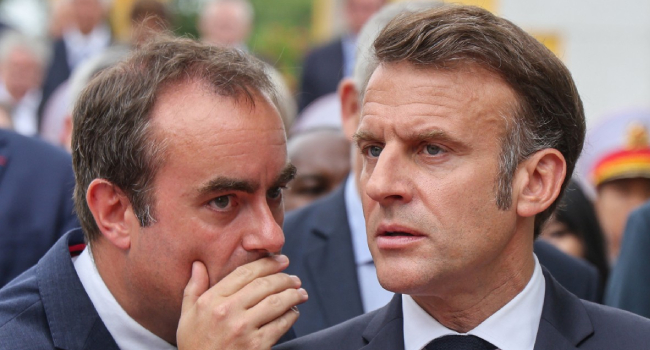PARIS: French Presidency Emmanuel Macron has appointed Defence Minister Sebastien Lecornu as France’s new prime minister; a move aimed at calming mounting political unrest following the collapse of Francois Bayrou’s short-lived government.
The 39-year-old Lecornu, a trusted confidant of Emmanuel Macron, replaces Bayrou, who resigned after just nine months in office when parliament overwhelmingly passed a no-confidence vote against his austerity budget. The formal handover is scheduled for Wednesday at midday.
In a statement, the Elysee said Macron tasked Lecornu with consulting parliamentarians to build consensus on a new national budget and secure key agreements essential for France’s stability.
The president’s swift decision contrasts with his usual tendency to deliberate at length before naming a premier, underscoring the urgency of the crisis.
Bayrou’s downfall came after he unexpectedly forced a confidence vote on a budget that proposed €44 billion ($52 billion) in spending cuts.
The motion backfired, with 364 deputies rejecting his government against 194 who backed it.
His exit marks the sixth change of prime minister under Macron since 2017 and the fifth since 2022.
France’s fragile political landscape stems from the 2024 legislative elections, which produced a hung parliament.
The uncertainty has rattled financial markets, with French borrowing costs edging above Italy’s traditionally one of Europe’s most indebted states.
Lecornu, who has served as defence minister for more than three years and played a central role in France’s support for Ukraine, is widely regarded as a skilled negotiator and loyal ally.
Crucially for Macron, he is seen as a figure without presidential ambitions, which may make him more dependable in the role.
Political reactions to his appointment have been divided. Far-right leader Marine Le Pen dismissed the move as the final shot of Macronism, while the Socialist Party accused the president of sidelining them and warned of potential social unrest.
By contrast, former Prime Minister Edouard Philippe praised Lecornu as a leader with the qualities needed to negotiate and build consensus across party lines.
France now faces a volatile political and social climate. A left-wing coalition, Block Everything, has already announced nationwide protests for Wednesday, while trade unions are planning strikes on September 18.
Meanwhile, the 2027 presidential race looms large, with many analysts predicting the far right could mount its strongest challenge yet.
As Macron prepares for his final two years in office barred by law from seeking a third term Lecornu’s ability to stabilize the government and broker political compromises will be closely watched both at home and abroad.



